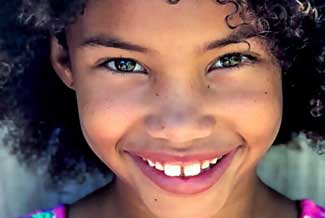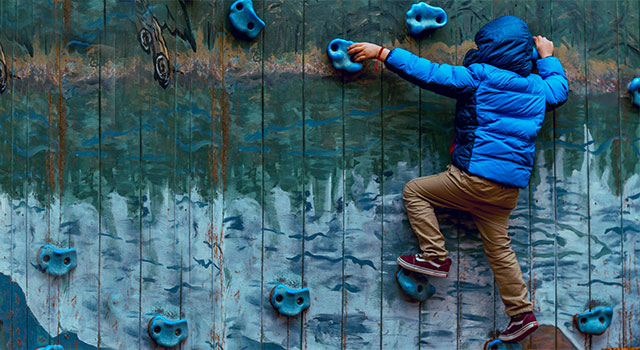
Dry Eye And Myopia Management
All parents considering myopia management for their children want to know that the treatments are safe, comfortable and effective. One particular concern is whether myopia treatments could affect their child’s dry eye syndrome.
Can a child with dry eye symptoms still be a candidate for each of the myopia management treatments? Is there a chance the myopia treatments could worsen a child’s dry eye symptoms? Or perhaps improve them?
There is much to consider, and your optometrist will carefully treat each case on an individual basis.
Below, we’ll explain what dry eye syndrome (DES) is and how it may relate to myopia management.
A Brief Overview of Dry Eye Syndrome
DES is a chronic lack of ocular hydration due to insufficient tears or an imbalance in the components that make up the tears (oil, mucus and water).
Certain health conditions, medications, weather conditions, aging, allergies, nutritional deficiencies, and excessive screen time can all contribute to the onset and severity of DES.
Common signs and symptoms of DES include:
- Red, irritated eyes
- Watery eyes
- Stinging or burning eyes
- Grittiness
- Blurred vision
- Light sensitivity
- Stringy mucus around the eyes
- Frequent eye rubbing
DES can be successfully treated in a number of ways, including artificial tears, medicated eye drops, nutritional supplements and by implementing proper eyelid hygiene, like cleaning the eyelids and regions adjacent to the eyes daily. Your eye doctor will prescribe the treatment that targets the underlying cause of your condition.
What Puts Children and Teens at Risk of Developing DES?
Although children have a lower risk of developing DES than adults, they can still suffer from its painful and irritating symptoms. Some experts believe that dry eye syndrome is underdiagnosed in children because they may lack the verbal skills to describe their discomfort.
Risk factors for a child/adolescent developing DES are:
- Allergies
- Certain medications (acne medication, antidepressants, anti-anxiety medications, antihistamines)
- Certain health conditions (blepharitis, herpes simplex viruses, evaporative eye disease, certain neurological disorders, diabetes, inflammatory conditions)
- Excessive screen time (people blink less when staring at a screen
- Nutritional deficiencies
If any of the above factors relate to your child, discuss them with your child’s optometrist before deciding on a particular myopia management treatment.
Myopia Management Options and DES
Multifocal Contact Lenses
These lenses are worn during the day and are usually discarded every night. Children naturally produce more oil in their tears and have a higher tear volume, making contact lenses more comfortable to wear and reducing the risk of DES symptoms.
Some research suggests that children with ocular allergies can actually benefit from wearing contact lenses, as the lens creates a barrier between the eye’s surface and airborne allergens.
However, children with seasonal allergies who regularly take antihistamines may be prone to DES due to the anticholinergic effects of the medicine that inhibit lacrimal gland functioning and reduce the child’s tear volume.
If children experience mild discomfort with daytime lens wear, they may find relief using lubricating eye drops.
Ortho-K Lenses
Ortho-k lenses (also called ‘orthokeratology’), are rigid gas-permeable contact lenses that are worn overnight during sleep. These lenses gently and safely change the shape of the cornea, so children don’t need to wear glasses or contacts during the day. They are removed in the morning and leave the child with crisp and clear vision.
Ortho-k is a fine choice for children who can’t wear daytime lenses due to allergies, DES, or other eye irritations. They are also great for children and teens who participate in sports and other physical activities since no daytime eyewear is required.
Atropine Eye Drops
These medicated eye drops are placed into the eyes once per day and have been shown to effectively slow childhood myopia progression.
Atropine eye drops usually contain preservatives that can cause eye irritation and dryness. However, the low-dose atropine drops prescribed to children have no clinically significant effect on the eyes with regards to DES.
If Your Child Has Myopia, We Can Help!
The bottom line is that even a child with sensitive eyes or DES can still benefit from myopia management treatments. Your optometrist will guide you on what options are the safest, most comfortable and convenient for you and your child.
If your child has myopia or is at risk of developing it, don’t wait until it’s too late. Halt their myopia now, and they’ll thank you later.
To schedule your child’s myopia consultation, call Advanced Eyecare & Therapies today!
Our practice serves patients from Spokane, Post Falls, Coeur d'Alene, and Sandpoint, Washington and surrounding communities.








